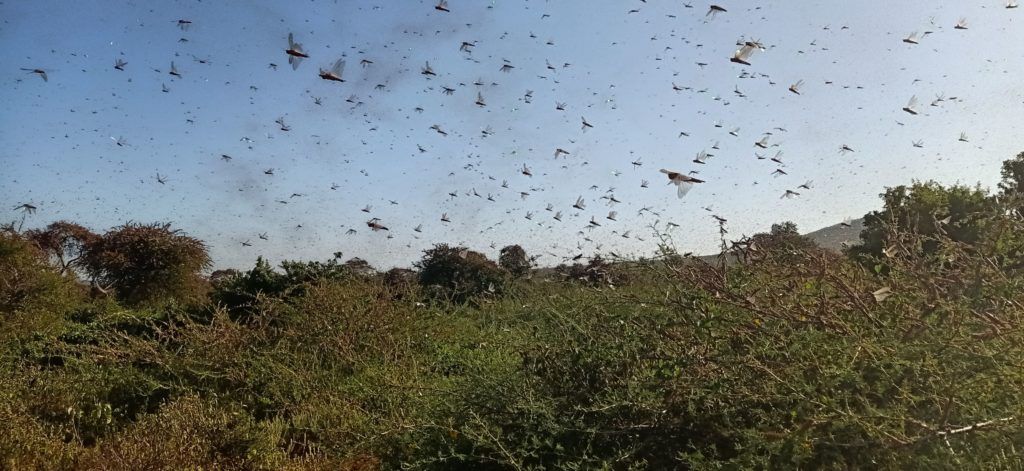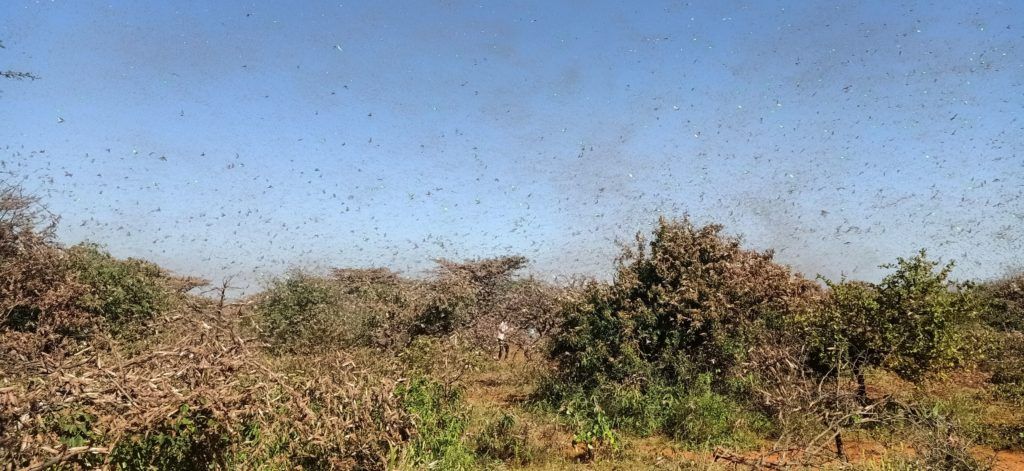 Press Release, Stories
Press Release, Stories
January 30, 2020 • 2 min read
GOAL is warning that an ‘‘unprecedented’’ locust infestation sweeping east Africa is wiping out food supply in parts of Ethiopia. Two of GOAL’s programme areas of operation in Ethiopia are currently affected by the outbreak which is threatening much of the region’s food security.
"Resources are urgently needed so we can scale up our efforts to respond to the outbreak. We are appealing to the donor community and public to support our efforts to halt the infestation, to help protect vital food and income sources, and prevent a disaster from occurring."
GOAL is outlining that resources are now urgently needed to respond to a locust infestation emergency. GOAL is appealing to the donor community and public to support efforts to halt the infestation to prevent a disaster.
As well as parts of Ethiopia, the desert locusts, considered the most dangerous of the species, have also impacted parts of Kenya and Somalia. The Food and Agricultural Organization (FAO), food assistance branch of the UN, said the situation now has ‘‘international dimensions’’. It has called for a collective campaign to deal with the crisis including $70M to urgently support pest control and livelihood protection in the three affected countries.
Dinkneh Asfaw, Country Director for GOAL in Ethiopia, said most of the affected areas in GOAL’s area of operations in the Borena Zone in Oromiya Region and the Dollo Zone in Somali Region are already highly vulnerable.
”The locust infestation emergency will seriously aggravate many exposed communities. Both of our affected regions in Ethiopia have already been hit hard by drought and internal conflict.”
You can donate to support GOAL’s response in Ethiopia here.
He added: “The locust infestation emergency now means these areas are losing tons of food on a daily basis, food that is desperately needed for thousands of families. In pastoral areas, such as the Dollo Zone, the locusts are eating the pasture, which is a vital source of food for livestock – something many families depend on for food and income.’’
GOAL Ethiopia is currently supporting local government efforts to control the infestation using a coordinated approach through spraying and other means.
However, GOAL has warned the resources are insufficient to cover all affected areas.
‘‘If the infestation is not controlled in a matter of days the outbreak is likely to spread to wider regions across the country and beyond,’’ said Asfaw.
”Resources are urgently needed so we can scale up our efforts to respond to the outbreak. We are appealing to the donor community and public to support our efforts to halt the infestation, to help protect vital food and income sources, and prevent a disaster from occurring.”
Locusts can travel up to 150 km a day and a swarm the size of Paris could eat the same amount of food as half the population of France in a single day, according to an FAO fact sheet.
Heavy rain last year created ideal conditions for the insects to spread. The FAO has stressed that if favourable breeding conditions continue, the increase in locust infestation emergency could last until June.
To support GOAL’s response in Ethiopia, please Donate Now.


